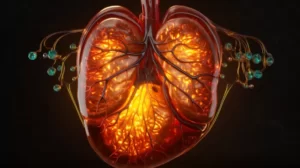Hangovers are an unpleasant experience most of us have faced at some point in our lives. The dreaded headache, nausea, and fatigue that follow a night of excessive drinking can leave you feeling miserable. However, there is one common habit that can make your hangover even worse – smoking cigarettes.
Research: Link Between Smoking and Hangovers
Researchers at the Center for Alcohol and Addiction Studies at Brown University in Providence, Rhode Island, have found that individuals who smoke more cigarettes on the day they drink heavily are more likely to suffer hangover symptoms. Damaris J. Rohsenow, a researcher involved in the study, explains that this is not simply because people tend to smoke more when they drink more. Even when the number of drinks consumed is kept the same, those who smoke more on that particular day are more likely to experience a hangover and endure more severe symptoms.
Why Does Smoking Make Hangovers Worse?
Various theories suggest why smoking cigarettes makes hangovers more painful. One possibility is that both alcohol and smoke irritate the lining of the stomach. Drinking heavily can cause gastric irritation, leading to inflammation of the stomach lining. Add smoking into the mix, and this irritation is further intensified. As a result, smokers may experience increased nausea and abdominal pain during a hangover.
Another possible explanation is how nicotine affects the body’s hormonal stress system. Both alcohol and nicotine stimulate the release of the stress hormone cortisol. Elevated cortisol levels are associated with an increased heart rate, higher blood pressure, and a range of other physical symptoms that may exacerbate hangover discomfort.
Finally, smoking cigarettes may also impact sleep quality. Research shows that nicotine affects sleep architecture, reduces rapid eye movement (REM) sleep, and contributes to overall poor sleep quality. A night of heavy drinking is known to disrupt sleep patterns, and smoking cigarettes only adds to the problem, resulting in increased fatigue and a more intense hangover.
Reducing Hangover Symptoms
Considering the potential negative effects of smoking on hangovers, cutting back on smoking while drinking could minimize symptoms. However, the most effective strategy for avoiding a hangover lies in responsible drinking habits, including:
- Drinking in moderation: Stick to the recommended guidelines for alcohol consumption, such as one drink per hour. Binge drinking can be harmful to your health and significantly increase the chances of a painful hangover.
-
Staying hydrated: Alcohol is a diuretic, meaning it can cause dehydration. Drink water between alcoholic beverages and before going to bed to help prevent a hangover.
-
Eating before drinking: Consuming food, particularly carbohydrate-rich meals, can help slow down alcohol absorption, allowing your body to process it more effectively.
-
Selecting drinks wisely: Drinks with fewer impurities (congeners) can reduce the severity of hangovers. Opt for beverages like vodka, gin, or white wine, which contain fewer congeners than other choices.
-
Getting adequate sleep: Give your body the chance to recover by ensuring you get a good night’s sleep following a night of drinking.
Final Thoughts
It’s clear that smoking cigarettes can make hangovers more uncomfortable by exacerbating the severity of symptoms. The best way to approach this issue is by practicing responsible drinking habits and reducing smoking, ideally quitting altogether. Though hangovers are a common part of life, being mindful of your choices while consuming alcohol may help to improve your overall experience and minimize any negative consequences.



![8 Simple Rules to Refresh Your Body with a Healthy Cleanse [See Pictures]](https://naturalhealthreserve.com/wp-content/uploads/2024/01/8-rules-healthy-cleanse-slideshow-300x168.webp)